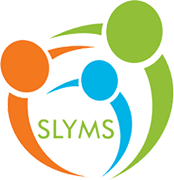About SLYMS
[en] About SLYMS | [es] Sobre SLYMS | [pt] Sobre SLYMS | [gk] για το SLYMS
SLYMS, an acronym for "Sociocultural Learning of Youth in Mobile Societies", is an Erasmus + project financed by the European Commission and in which participate organizations from Greece, Portugal, and Spain: University of Thessaly, Pompeu Fabra University, the NGO CAI, NGO “ARSIS Association for the Social Support of Youth" and the Municipality of Thessaloniki.
The main objective of the project is to develop, implement and evaluate a sociocultural model of non-formal and informal learning in the youth of mobile societies in multilingual education in Europe. It is expected to systematize the learning process through social networks and multicultural events and transform them into learning opportunities for young workers and with cultural differences and social obstacles.
On the other hand, the priority of the project is to strongly encourage cooperation between education and training institutions, local communities, local and regional administrations, social workers and youth specialists, volunteers and civil society in general to improve the inclusion of moving populations, to build a positive identity. and strengthen their sense of belonging to a community.
The SLYMS model seeks to prevent racism and intolerance among young people; encourages the inclusion and employability of young people with fewer opportunities (young people at risk of marginalization and young people with a migrant background, including newly arrived immigrants and refugee young people); promotes intercultural dialogue and strengthens knowledge and acceptance of diversity in society.
This paper presents a documented and substantiated outline of the non-formal and informal learning pathways that can be generated during the organization and participation in socio-cultural events, with special emphasis on the experience gained from the Multilingualism Festival held in Thessaloniki during the last seven years.
That way, as a result of the work we have done with youth workers and educators who have regularly participated in the organization of the festival, the document presents, first of all, the theoretical discussion on the possible ways of learning of the festival, as an example to be extrapolated to other sociocultural activities; second, it shares some details about the research and its methodology; and finally, it exposes the analysis of the empirical material.


